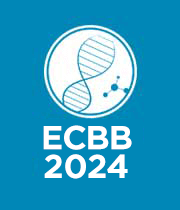Euro-Global Conference on Biotechnology and Bioengineering 2023
Report:
We have successfully completed our “Euro-Global Conference on Biotechnology and Bioengineering (ECBB 2023)” which was held Online during June 14-15, 2023.
ECBB 2023 dais was embellished by world renowned speakers who shared their experiences and ideas in various topics of Biotechnology, Bioengineering, Biomedical Engineering.
ECBB 2023 Organizing Committee:
Magnus Group extends its sincere gratitude towards our eminent keynote speakers Dario Puppi, University of Pisa, Italy; Thomas J Webster, Hebei University of Technology, United States; Tania Limongi, Politecnico di Torino, Italy; Luis Jesus Villarreal Gomez, Universidad Autonoma de Baja California, Mexico; Cristiano Jose De Andrade, Federal University of Santa Catarian (UFSC), Brazil; Rajesh Pratap Singh, IIT Roorkee, India; for your valuable presence and sharing your ideas and practices in diversified topics of Biotechnology, Bioengineering, Biomedical Engineering.
Upcoming Biotechnology Conferences: Biotechnology Conferences 2024 | Biotechnology Congress | Biotechnology Congress 2024 | Bioengineering Conferences | Bioengineering Conferences 2024 | Biomedical Engineering Conferences | Biotechnology Meetings | Biomedical Engineering Conferences 2024
Speakers of ECBB 2023:
Day-1 Speakers:
|
Tania Limongi
|
Politecnico di Torino
|
Italy
|
|
Yan Xiaojun
|
Beijing CytoNiche Biotechnology
|
China
|
|
Mohamed Zarid
|
Universidad Politecnica de Cartagena
|
Spain
|
|
Romulo R Macadangdang Jr
|
National University
|
Philippines
|
|
Pooja Bhadrecha
|
Chandigarh University
|
India
|
|
Kunal
|
SGT University
|
India
|
|
Touria Bounnit
|
Qatar University
|
Qatar
|
|
Afsana Praveen
|
Noida International University
|
India
|
|
Moulai Djilali
|
University of Mascara
|
Algeria
|
|
Delia Teresa Sponza
|
Dokuz Eylul University
|
Turkey
|
|
Ammarah Hasnain
|
Lahore Medical and Dental College
|
Pakistan
|
|
Thomas J Webster
|
Hebei University of Technology
|
United States
|
|
Cristiano Jose de Andrade
|
Federal University of Santa Catarian (UFSC)
|
Brazil
|
|
Luis Jesus Villarreal Gomez
|
Universidad Autonoma de Baja California
|
Mexico
|
|
Fabian Echeverria Beirute
|
Instituto Tecnologico de Costa Rica
|
Costa Rica
|
Poster Presentations:
|
Fanny Gimie
|
Gip cyroi
|
France
|
|
Pamela Obando
|
Universidad Peruana Cayetano Heredia
|
Peru
|
|
Maysaa Abdul Razzaq Dhahi
|
Al Nahrain University
|
Iraq
|
Day-02 Speakers:
|
Tania Limongi
|
Politecnico di Torino
|
Italy
|
|
Yan Xiaojun
|
Beijing CytoNiche Biotechnology
|
China
|
|
Mohamed Zarid
|
Universidad Politecnica de Cartagena
|
Spain
|
|
Romulo R Macadangdang Jr
|
National University
|
Philippines
|
|
Pooja Bhadrecha
|
Chandigarh University
|
India
|
|
Kunal
|
SGT University
|
India
|
|
Touria Bounnit
|
Qatar University
|
Qatar
|
|
Afsana Praveen
|
Noida International University
|
India
|
|
Moulai Djilali
|
University of Mascara
|
Algeria
|
|
Delia Teresa Sponza
|
Dokuz Eylul University
|
Turkey
|
|
Ammarah Hasnain
|
Lahore Medical and Dental College
|
Pakistan
|
|
Thomas J Webster
|
Hebei University of Technology
|
United States
|
|
Cristiano Jose de Andrade
|
Federal University of Santa Catarian (UFSC)
|
Brazil
|
|
Luis Jesus Villarreal Gomez
|
Universidad Autonoma de Baja California
|
Mexico
|
|
Fabian Echeverria Beirute
|
Instituto Tecnologico de Costa Rica
|
Costa Rica
|
Upcoming Biotechnology Conferences: Biotechnology Conferences 2024 | Biotechnology Congress | Biotechnology Congress 2024 | Bioengineering Conferences | Bioengineering Conferences 2024 | Biomedical Engineering Conferences | Biotechnology Meetings | Biomedical Engineering Conferences 2024
We thank all our speakers, delegates, and students for joining and making the event successful!
For Abstract book of ECBB -2023: Click here
For Final Program of ECBB-2023: Click here
Based on the success of ECBB 2023 we are glad to announce “4th Edition of Euro-Global Conference on Biotechnology and Bioengineering” (ECBB 2024) which is scheduled to take place in a Hybrid Format during September 19-21, 2024.
Upcoming Materials Conferences
Conference Name: 6th Edition of International Conference on Materials Science and Engineering
Dates: March 18-20, 2024
Venue: Singapore
Conference Name: 7th Edition of International Conference on Materials Science and Engineering
Dates: October 28-30, 2024
Venue: Baltimore, MD, USA
Upcoming Nanotechnology Conferences
Conference Name: 8th Edition of World Nanotechnology Conference
Dates: March 18-20, 2024
Venue: Singapore
Conference Name: 9th Edition of World Nanotechnology Conference
Dates: October 28-30, 2024
Venue: Baltimore, MD, USA
Upcoming Pharma Conferences
Conference Name: 11th Edition of Global Conference on Pharmaceutics and Novel Drug Delivery Systems
Dates: September 19-21, 2024
Venue: Rome, Italy
Upcoming Biotechnology Conferences
Conference Name: 4th Edition of Euro-Global Conference on Biotechnology and Bioengineering
Dates: September 19-21, 2024
Venue: Rome, Italy
For Magnus Group Conferences Reviews:
Magnus Group ECBB Conferences Reviews | Magnus Conferences Reviews
Upcoming Biotechnology Conferences:
Euro-Global Conference on Biotechnology and Bioengineering 2022 Report:
We have successfully completed our “Euro-Global Conference on Biotechnology and Bioengineering (ECBB 2022)” which was held Online during June 13-14, 2022.
ECBB 2022 dais was embellished by world renowned speakers who shared their experiences and ideas in various topics of Biotechnology, Bioengineering, Biomedical Engineering.
ECBB 2022 Organizing Committee:
Magnus Group extends its sincere gratitude towards our eminent keynote speakers Dario Puppi, University of Pisa, Italy; Alexandra Peregrina Lavin, NOVA University of Lisbon, Portugal; Cristiano Jose de Andrade, Federal University of Santa Catarian (UFSC), Brazil; Giovanni Vozzi, University of Pisa, Italy; Vladimir Chigrinov, Hong Kong University of Science and Technology, Hong Kong; Amy L Thompson, Austin Peay State University, USA for your valuable presence and sharing your ideas and practices in diversified topics of Biotechnology, Bioengineering, Biomedical Engineering.
Upcoming Biotechnology Conferences: Biotechnology Conferences 2024 | Biotechnology Congress | Biotechnology Congress 2024 | Bioengineering Conferences | Bioengineering Conferences 2024 | Biomedical Engineering Conferences | Biotechnology Meetings | Biomedical Engineering Conferences 2024
Speakers of ECBB 2022:
Day-1 Speakers:
|
Dario Puppi
|
University of Pisa
|
Italy
|
|
Alexandra Peregrina Lavin
|
NOVA University of Lisbon
|
Portugal
|
|
Cristiano Jose de Andrade
|
Federal University of Santa Catarian (UFSC)
|
Brazil
|
|
Wu Beilei
|
Chinese Academy of Agricultural sciences
|
China
|
|
Simona Braccini
|
University of Pisa
|
Italy
|
|
Francesco Secundo
|
“Giulio Natta” Institute of Chemical Sciences and Technologies
|
Italy
|
|
Biyue Zhu
|
Massachusetts general hospital
|
USA
|
|
Belen Cortes Llanos
|
Duke University
|
USA
|
|
Daniel Felipe Bohorquez Vargas
|
University of La Sabana
|
Colombia
|
|
Poonam kumari
|
National Institute of Pharmaceutical Education & Research (NIPER)
|
India
|
|
Sayan Bhattacharyya
|
AIIH&PH
|
India
|
|
Shyamapada Mandal
|
University of Gour Banga
|
India
|
|
Deepak Kumar
|
Postgraduate Institute of Medical Education and Research
|
India
|
|
Magdalena Hryhorowicz
|
Poznan University of Life
|
Poland
|
|
Borja G Leon
|
Imperial College London
|
United Kingdom
|
Poster Presentation:
|
Marek Koutny
|
Tomas Bata University in Zlin
|
Czech Republic
|
|
Debabrata Das
|
ICAR-CIFRI
|
India
|
Day-2 Speakers:
|
Giovanni Vozzi
|
University of Pisa
|
Italy
|
|
Vladimir Chigrinov
|
Hong Kong University of Science and Technology
|
Hong Kong
|
|
Frelet-Barrand
|
Institute FEMTO
|
France
|
|
Braicu Cornelia
|
Iuliu Hatieganu University of Medicine and Pharmacy
|
Romania
|
|
Thomasj.Webster
|
Interstellar Therapeutics
|
United States
|
|
Debabrata Das
|
ICAR-CIFRI
|
India
|
|
Manisha Mandal
|
Department of Physiology
|
India
|
|
Christoph Koppl
|
Austrian Centre of Industrial Biotechnology GmbH
|
Austria
|
|
Lopamudra Dey
|
Heritage Institute of Technology
|
India
|
|
Anfal M. Alkandari
|
Mansoura university
|
Kuwait
|
|
Kalra Aakanksha
|
Dr. B. Lal Institute of Biotechnology
|
India
|
|
Amy L Thompson
|
Austin Peay State University
|
USA
|
Upcoming Biotechnology Conferences: Biotechnology Conferences 2024 | Biotechnology Congress | Biotechnology Congress 2024 | Bioengineering Conferences | Bioengineering Conferences 2024 | Biomedical Engineering Conferences | Biotechnology Meetings | Biomedical Engineering Conferences 2024
We thank all our speakers, delegates, and students for joining and making the event successful!
For Abstract book of ECBB -2022: Click here
For Final Program of ECBB-2022: Click here
For Magnus Group Conferences Reviews:
Magnus Group ECBB Conferences Reviews | Magnus Conferences Reviews
Euro-Global Conference on Biotechnology and Bioengineering 2021 Report:
We have successfully completed our “Euro-Global Conference on Biotechnology and Bioengineering (ECBB 2021)” which was held Online during 06-07 September 2021.
We extend our heartfelt thanks for our chair Hector M Alvarez from National University of Patagonia San Juan Bosco, Argentina and Rosalinda Mazzei from National Research Council, ITM-CNR, Italy.
ECBB 2021 dais was embellished by world renowned speakers who shared their experiences and ideas in various topics of Biotechnology, Bioengineering, Biomedical Engineering.
ECBB 2021 Organizing Committee:
Magnus Group extends its sincere gratitude towards our eminent keynote speakers Jose M Dominguez Vera, University of Granada, Spain; Tony Hadibarata, Curtin University Malaysia, Malaysia; Hector M Alvarez, National University of Patagonia San Juan Bosco, Argentina; Rosalinda Mazzei, National Research Council, ITM-CNR, Italy; Marino Nebuloni, Parma University, Italy; Francesca Selmin, University of Milan, Italy; Zoltan Banoczi, Institute of Chemistry, Eotvos Lorand University, Hungary for your valuable presence and sharing your ideas and practices in diversified topics of Biotechnology, Bioengineering, Biomedical Engineering.
We also thank our speakers and young researchers for sharing their work in wide range of Biotechnology, Bioengineering, Biomedical Engineering at ECBB 2021 dais and making the event grand success.
Upcoming Biotechnology Conferences: Biotechnology Conferences 2024 | Biotechnology Congress | Biotechnology Congress 2024 | Bioengineering Conferences | Bioengineering Conferences 2024 | Biomedical Engineering Conferences | Biotechnology Meetings | Biomedical Engineering Conferences 2024
Speakers of ECBB 2021:
Day-1 Speakers:
|
Jose M Dominguez Vera
|
University of Granada
|
Spain
|
|
Tony Hadibarata
|
Curtin University Malaysia
|
Malaysia
|
|
Hector M Alvarez
|
National University of Patagonia San Juan Bosco
|
Argentina
|
|
Rosalinda Mazzei
|
National Research Council, ITM-CNR
|
Italy
|
|
Shunsuke Masuo
|
University of Tsukuba
|
Japan
|
|
Nozomi Katsuki
|
University of Tsukuba
|
Japan
|
|
Poonam Kumari
|
National Institute of Pharmaceutical Education & Research (NIPER)
|
India
|
|
Shuhei Yoshida
|
Kyoto Institute of Technology
|
Japan
|
|
Mako Uchio
|
Kyoto Institute of Technology
|
Japan
|
|
Jia Min Lee
|
Nanyang Technological University
|
Singapore
|
|
Santanu Dasgupta
|
Reliance Industries Ltd
|
India
|
|
Mohammed Amine Serghini
|
Ibn Zohr University
|
Morocco
|
|
Hana Dostalova
|
Institute of Microbiology of the CAS
|
Czech Republic
|
|
Carla C.C.R. de Carvalho
|
University of Lisbon
|
Portugal
|
|
Cristiano Jose de Andrade
|
Federal University of Santa
Catarina (UFSC)
|
Brazil
|
|
Olajumoke Oyebode
|
University of Johannesburg
Doornfontein
|
South Africa
|
Poster Presentation:
|
Marzena Mazurek
|
University of Rzeszow
|
Poland
|
|
Alexandra Peregrina
|
NOVA University Lisbon
|
Portugal
|
|
Timea Ottilia KOBORI
|
Bay Zoltan Nonprofit Ltd. For Applied Research
|
Hungary
|
|
Ioannis E. Sarris
|
University of West Attica
|
Greece
|
|
Chika Ifeanyi Chukwuma
|
Central University of
Technology
|
South Africa
|
|
Martina Cappelletti
|
University of Bologna
|
Italy
|
|
Florin Borcan
|
University of Medicine and Pharmacy
|
Romania
|
|
Katarzyna Strus
|
University of Rzeszow
|
Poland
|
|
Monika Stanciauskaite
|
Lithuanian University of Health Sciences
|
Lithuania
|
Upcoming Biotechnology Conferences: Biotechnology Conferences 2024 | Biotechnology Congress | Biotechnology Congress 2024 | Bioengineering Conferences | Bioengineering Conferences 2024 | Biomedical Engineering Conferences | Biotechnology Meetings | Biomedical Engineering Conferences 2024Upcoming Biotechnology Conferences: Biotechnology Conferences 2024 | Biotechnology Congress | Biotechnology Congress 2024 | Bioengineering Conferences | Bioengineering Conferences 2024 | Biomedical Engineering Conferences | Biotechnology Meetings | Biomedical Engineering Conferences 2024
Day-2 Speakers:
|
Marino Nebuloni
|
Parma University
|
Italy
|
|
Francesca Selmin
|
University of Milan
|
Italy
|
|
Zoltan Banoczi
|
Institute of Chemistry, Eotvos Lorand University
|
Hungary
|
|
Abhishek Gupta
|
University of Wolverhampton, Walsall Campus
|
UK
|
|
Leo K Iwai
|
Butantan Institute
|
Brazil
|
|
Janice Mani
|
Central Queensland University
|
Australia
|
|
Md Abdur Rashid
|
King Khalid University
|
Saudi
Arabia
|
|
Armorel Diane van Eyk
|
University of the Witwatersrand
|
South Africa
|
|
Ozge Esim
|
Ankara University
|
Turkey
|
|
Luciana Lehuede
|
University of Chile
|
Chile
|
|
Onelia Gagliano
|
University of Padova
|
Italy
|
|
Bhupendra Gopalbhai Prajapati
|
Shree S.K.Patel College
of Pharmaceutical Education and Research
|
India
|
|
Mansureh Ghavamm
|
University of Kashan
|
Iran
|
|
Sawsan Zaitone
|
Suez Canal University
|
Egypt
|
|
Katarina Kores
|
University of Maribor
|
Slovenia
|
|
Nada Fawzy Abo EL-Magd
|
Mansoura University
|
Egypt
|
Upcoming Biotechnology Conferences: Biotechnology Conferences 2024 | Biotechnology Congress | Biotechnology Congress 2024 | Bioengineering Conferences | Bioengineering Conferences 2024 | Biomedical Engineering Conferences | Biotechnology Meetings | Biomedical Engineering Conferences 2024
We thank all our speakers, delegates and students for joining and making the event sucessfull!
For Abstract book of ECBB -2021: Click here
For Final Program of ECBB-2021: Click here
For Magnus Group Conferences Reviews:
Magnus Group ECBB Conferences Reviews | Magnus Conferences Reviews








































